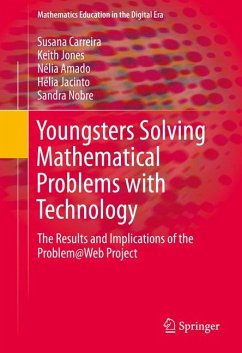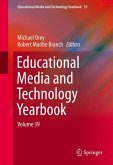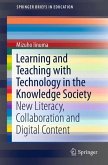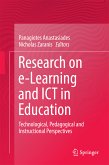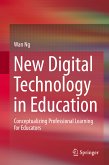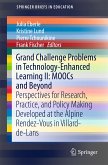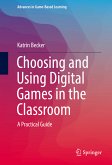This book investigates problem solving approaches to mathematical problems that youngsters use in the wake of the growing availability of digital technologies, and how these approaches can be effective and productive for their unique needs. The empirical research, conducted in the Problem@Web project, delves into the many ways in which students can achieve the solution to a mathematical problem and communicate it with the technological tools they have at their disposal, either in their home environment or in their mathematics classroom. The researchers then address the implications for the future study of a broadened perspective on mathematical problem solving with technology. In addition to exploring how technology has changed mathematical problem solving, the book also provides:
- A well-developed theoretical framework that integrates the use of technology into mathematical problem-solving
- Insightful analysis of the young participants' methods of mathematical problem solving, in addition to their teachers and families
- Examples of student solutions, together with the students' explanations of how they achieved their solution
Youngsters Solving Mathematical Problems with Technology is an extremely valuable resource for any researcher or educator interested in mat
hematics education, technology in education, or the intersection of both.
>
Dieser Download kann aus rechtlichen Gründen nur mit Rechnungsadresse in A, B, BG, CY, CZ, D, DK, EW, E, FIN, F, GR, HR, H, IRL, I, LT, L, LR, M, NL, PL, P, R, S, SLO, SK ausgeliefert werden.
"This book is an extensive summary/report of a three year project where schoolchildren were given problems to solve outside the usual classroom problems. ... this study is invaluable in giving modern mathematical educators insights into adapting modern pedagogical techniques to reflect how young people solve problems. ... all will find something that they can use to improve the effectiveness of their teaching." (Charles Ashbacher, MAA Reviews, maa.org, May, 2016)

